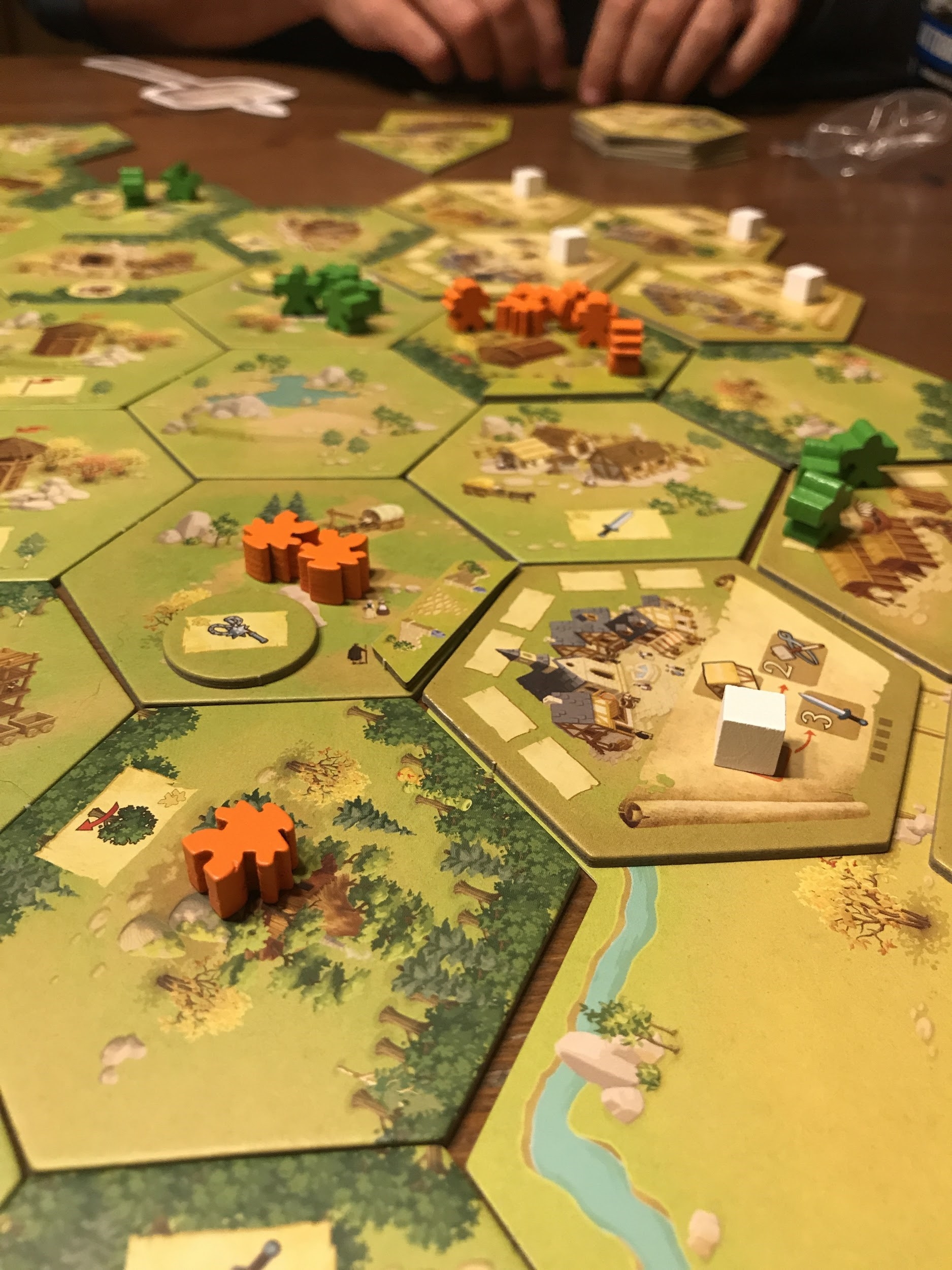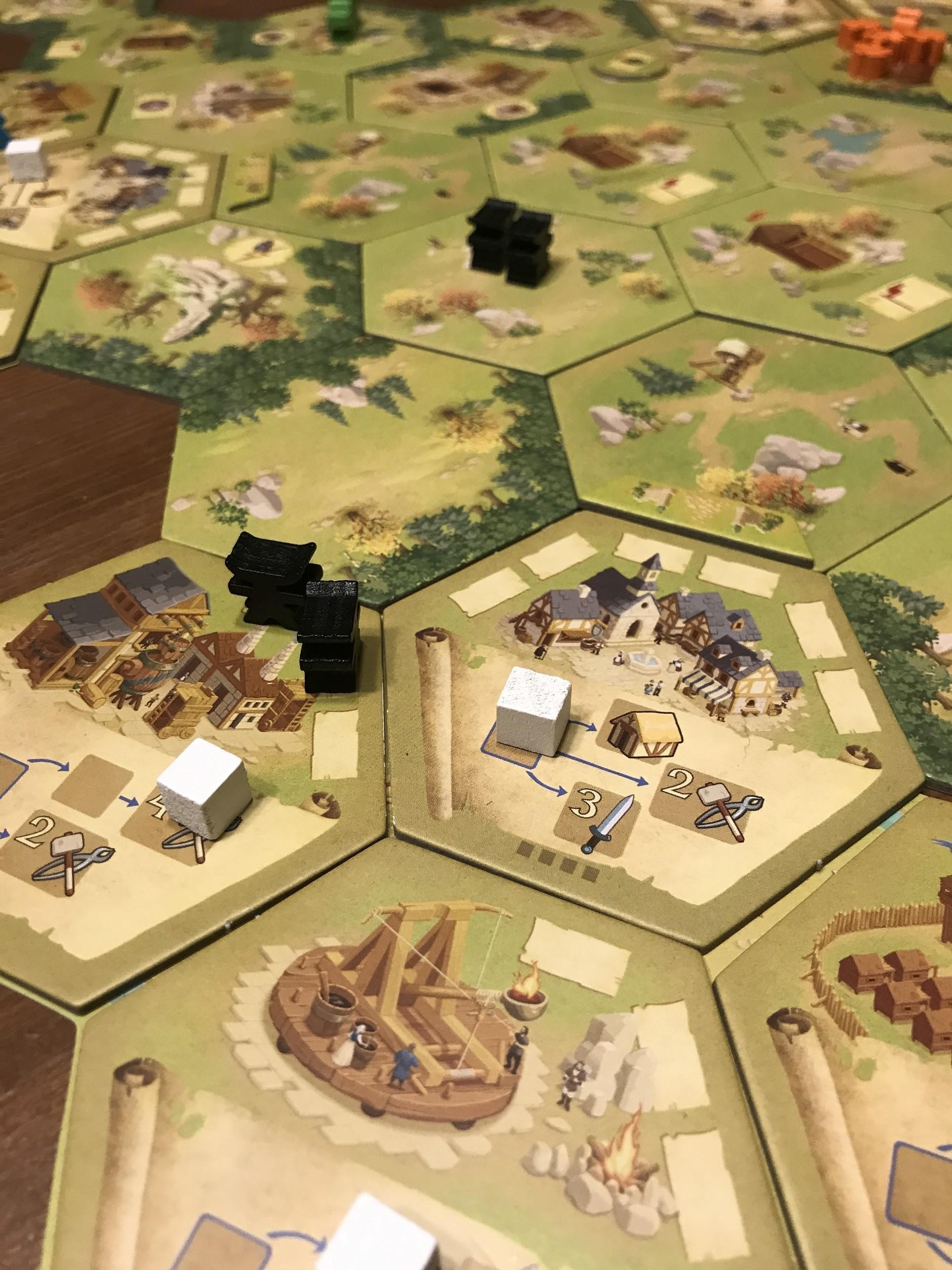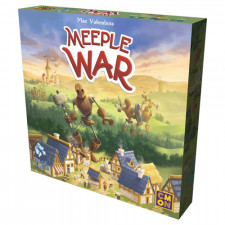Meeple War Review
on Nov 7, 2017
Critical Hits: Fast, steady tension, variety of buildings and strategies
Critical Misses: Bland combat, potential for unsatisfying finish
Ah the meeple. It’s perhaps the most iconic symbol of the board game hobby, introduced by Carcassonne and now present in thousands of games. It’s understandable to assume these little wooden tokens represent happy farmers, but there is a more sinister truth. Meeples are not peaceful little tokens; they’re towering engines of war.
Meeple War presents a violent past. Long before the meeple was used to control cities or lazy about in fields they were constructs of destruction. You lead one of the 4 kingdoms of Lilliput in a state of seemingly perpetual war. Over and over you’ll send your meeples forth only to see them torn down and rebuilt again in a dark reflection of the military-industrial complex. No explanation for this war is provided. Why are you fighting your neighbors? Why aren’t you working together to explore the world and tame it? Should you perhaps send a peace envoy?

Those questions are for another day as there is little time to ponder them. Coming in at a scant 45 minutes, Meeple War plays as quickly as it does brutally. Combat is as simple as a club is crude. If your meeples ever occupy the same area as an opponent’s meeples, they begin smashing each other. While bonuses exist for you to try and tip the battle in your favor the victor is typically the one with more figures than their opponent. Might makes right in Lilliput.
Losing figures, however, is a temporary setback. Your Kingdom is little more than a collection of industrial war factories. There are no resources to count, though there is a war strategy to manage. Your workers toil away dutifully round after round, only requiring that you choose which track they move along. Combat is simplistic but the worker system is engaging. You’re limited to 4 buildings in your Kingdom and timing is critical. Workers must move forward one space on their building and if you don’t sync them properly you could find yourself trying to deploy meeples you’re still 1 turn away from building.

Specialized buildings exist but their use must be balanced against your never ending need to construct more meeples. The catapult, a building that allows you to plop your warriors directly in an opponent’s kingdom is tempting though it telegraphs your strategy. Each building has a number of defense spots and attacking it as simple as entering the space with a meeple. Once destroyed, every meeple allocated to the siege scores you one of the 6 points you need to win. Unfortunately, that meeple is locked in the siege until the building is destroyed.
This allows for temporary alliances as you and an opponent combine forces to destroy a mutual enemy’s building. However, rapid deployment of meeples can hold you back. Many a crusade has stalled in the mud while too many meeples were mired in sieges. Components are extremely limited; each Kingdom has only 12 meeples and scoring a victory point means permanently deploying one of those meeples to Reputation Mountain. This VP mountain, while initially frustrating, is a clever rubber-banding system. Taking the lead means reducing your pool of available warriors. Tearing a building down means that you are tying up your soldiers in the siege and on Reputation Mountain. It seems that successful conquerors develop a rather high opinion of themselves and are content to rest on their laurels once they raze a Church or City Hall to the ground.
This build-fight-rebuild cycle makes for a game that is easy to play and slip into, and one that is full of conflict. However, that conflict is not always dramatic. Scoring favors the aggressor in any fight and it’s easy to intercept an enemy’s fighters with a suicide squad of your own. While tearing down an opponent’s buildings makes for a huge impact and is satisfying, scoring your final VP by killing 2 enemies with 2 of your own out in no-man’s land is rather bland. In fact, I almost wish that combat provided no victory points at all.
Ultimately, Meeple War is a simple game that is almost the exact right length. Once players absorb the symbology it’s easy to pull off the shelf and play and usually provides a rewarding experience. While it’s possible to end anticlimactically, even those games are often full of catapults and devout meeple-priests converting enemies to your cause.

 Customer Support
Customer Support  Subscribe
Subscribe 




 Account
Account  Wishlist
Wishlist 

